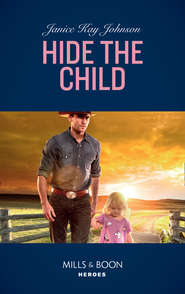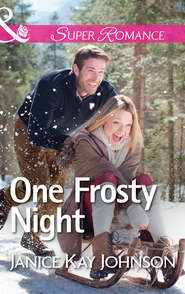По всем вопросам обращайтесь на: info@litportal.ru
(©) 2003-2024.
✖
Open Secret
Автор
Год написания книги
2018
Настройки чтения
Размер шрифта
Высота строк
Поля
“Maybe some of them got lost in the shuffle.”
“It’s conceivable, of course,” he admitted. “But the guy seemed pretty confident. Unless Cavanagh kept the files on your sister and brother at home, they should have been with the others.”
“If my aunt and uncle were insistent that the adoption be kept confidential…”
“The others were all similar, private adoptions. Why would Lucien’s and Linette’s be any different?”
“I…don’t know.”
As gently as possible, he said, “My suspicion is that your aunt and uncle misled you. They did have legal dealings at one time with Henry Cavanagh. He handled a minor lawsuit filed against your uncle in his business. So they knew his name, knew he was retired, maybe had even heard he died.”
“And thought I’d consider him a dead end,” she said slowly, anger growing in her voice. “I can imagine them doing that.”
“I’d like to talk to them. It would help if you accompanied me.”
Often clients hesitated at a time like this. Adoptees were often terrified of straining the bonds that held them to their adoptive families. No matter how desperately they were driven by the need to know where they came from, they were equally afraid of losing what they already had.
Suzanne was the exception. “You bet,” she agreed. “When?”
They left it that she’d arrange a time, and they would drive up to Bellingham together, where her aunt and uncle lived and where she’d grown up.
“Evening is fine,” he said. “My hours are always irregular. I have a housekeeper to watch Michael.”
She called him back a couple hours later and said her aunt had reluctantly agreed to meet with him the following evening.
“Uncle Miles won’t like it,” Suzanne said. “But if he blocks me too obviously, it’ll look like he’s hiding something. And in his view, no decision he’s ever made is wrong, so what does he have to hide?”
“And he never admits he’s wrong?” Mark guessed.
“Not in my memory,” she said with a tartness that made him like her anew.
She lived in Edmonds, a pricey community north of Seattle that clung to a hillside dropping to the Sound. The ferry traffic dominated the main route from the freeway, backed up for miles on summer weekends when vacationers were escaping to Hood Canal or the Washington coast. Downtown Edmonds catered to visitors with small shops and restaurants, all within a couple of blocks of the ferry terminal and the beach.
Suzanne’s was a modest older home on a street of larger ones, Mark discovered the next evening. It had the look of a summer cabin, simple and boxy, painted gray with white trim, the attached garage appearing to be a later addition.
Her yard defied the norm in this neighborhood, whether by design or neglect, he couldn’t tell. Her lawn was ragged and studded with dandelions, which the next door neighbor with his velvet green sward probably didn’t appreciate. Old shrubs rambled without any apparent effort to prune them, one ancient lilac nearly blocking a window. The dark turned earth in a few beds showed that she’d made some effort there, while grass wandered into others.
She came out immediately, so he didn’t get a chance to see the interior. She looked as pretty as spring in a short, lacy cardigan over a tank top and a flowery skirt that swirled around her legs as she got in.
“All set?”
She nodded. “A little nervous. They do love me, in their own way. I hate to upset them.”
He didn’t back out. “Your call.”
“I’ve started this, and I’m determined to finish it. Besides, I’m mad that they lied to me.”
They chatted as he drove, at first about innocuous subjects like traffic, local politics and real estate prices, with him finally suggesting that she tell him about her aunt and uncle.
The uncle had a one-man plumbing business, while her aunt had worked at a dry cleaner for as long as Suzanne could remember. Her voice softened when she talked about her aunt Jeanne, who sounded like a nice woman who didn’t like to rock the boat.
Suzanne’s voice became considerably more reserved when she spoke of her uncle, who had clearly treated his own kids—both boys—with blatant favoritism.
“Honestly,” she said, gazing thoughtfully ahead through the windshield, “I think he didn’t quite know what to do with a girl. Maybe if I’d liked sports, but I was never interested. So he pretty much ignored me.”
Jackass, he thought.
“Maybe he’d have done better if they’d kept Lucien. I’ve wondered.”
He glanced at her. “Did you ever wish…”
“That they had?” She gave a soft laugh that sounded a little sad. “Sometimes. Isn’t that funny? Adopted kids imagine what their ‘real’ parents are like, and I used to dream instead about what kind of adoptive family I might have gotten. And what my life might have been like.”
“Were they rich?”
“Oh, of course!” She was smiling now, relaxing. “I was their little princess. I had a horse, and my own car when I turned sixteen—not the chance to borrow whichever heap of junk one of my cousins was driving at the time. I might have been adopted by some Hollywood producer or director who’d cast me, so I was already a star by the time I was eighteen.”
“Do you act?” he asked.
“Heck no! I wouldn’t be caught dead in front of a camera!” Her laugh was a gurgle of good humor. “This was a fantasy, remember. The whole point is, I was someone else because a more glamorous set of parents had given me the right opportunities.”
The hesitation before she said “parents” was so small most people wouldn’t have noticed it. Mark was used to noticing everything.
His client, he suspected, never thought of her aunt and uncle as parents, even if they had raised her. He doubted she’d ever quite thought of the fictional couple who adopted her as parents, either. Because, of course, she had parents, and probably still mourned them.
Miles and Jeanne Fulton owned a 1970s era rambler with, Mark noted with interest, a razor-edged lawn, a row of junipers ruthlessly clipped into a low hedge and a driveway that was cleaner than most people’s kitchen floors.
Suzanne Chauvin’s house represented a little bit of a rebellion against her aunt and uncle’s standards, he diagnosed.
The aunt, a woman who looked much like an older version of Suzanne, met them fluttering at the door.
“I don’t know what else we can possibly tell you!” she said in agitation. “Your uncle hates to have all of that dredged up again.”
Mark said, in a calming voice, “We’re hoping you’ve had time to remember a little more since Ms. Chauvin first asked you about the adoption. Memories do tend to come back slowly, bits and pieces just popping up.”
“Well, yes, but…” Wringing her hands, she backed into the small kitchen. “Your uncle’s in the living room.” As if they couldn’t hear the television. “Go ahead. Can I bring anyone coffee?”
They both accepted, more to make her happy than because either of them wanted it.
The house was small, probably not over twelve hundred square feet was his guess. Suzanne had told him there were only three bedrooms and a bathroom down the hall, along with the living room and a kitchen with a large eating space that he could see. Admittedly not much space to raise even three kids, never mind five.
On the other hand, Mark had known people to rough-in a bedroom in a garage, throw up a small addition, or move when their family enlarged.
The uncle rose to greet them and briefly gripped Suzanne’s hand. Perhaps five feet eight inches, he was lean but strong looking, with a tattoo that appeared to be from Navy days on one bicep below the sleeve of his white undershirt. His hair was as ruthlessly trimmed as the lawn and the junipers, a graying brown buzz-cut. Deep furrows marked his forehead.
“So what’s this nonsense?” He jerked his head toward Mark. “A P.I.? You’re wasting hard-earned money to hire someone to find a couple of people who won’t even know who you are?”
Mark felt her stiffen beside him. “Whether they remember me or not, they’re my sister and brother.”











